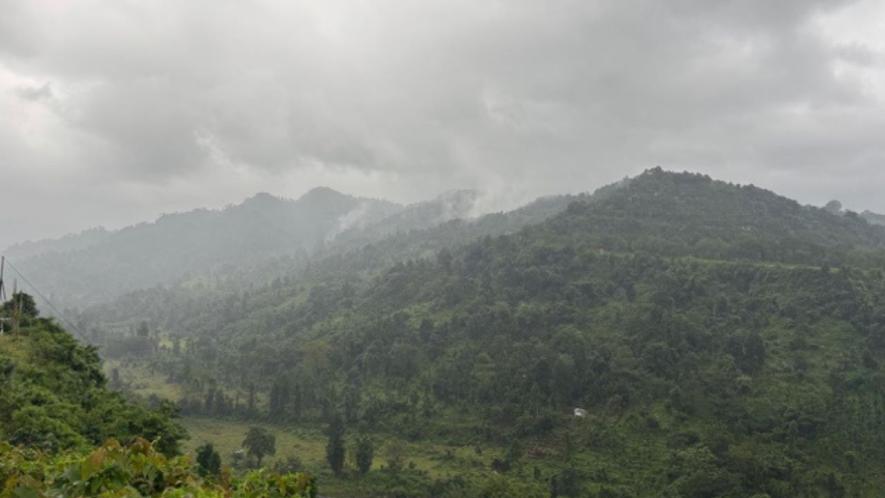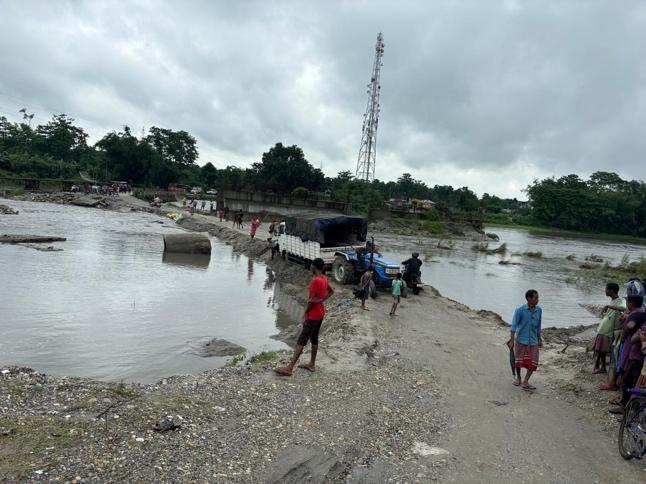Beyond Just That: North Bengal’s Development Conundrum

North Bengal is a region of extremes. Popularly recognised either for the breathtaking hills of Darjeeling or its geopolitical significance as the Chicken’s Neck connecting India to its North-East, the region’s identity often remains trapped within these narratives.
Mainstream discourse rarely delves into the deeper, more complex facets of the region — its people, their challenges, and the cultural richness that makes North Bengal more than just a strategic location or a picturesque destination.
The place may boast enchanting landscapes, but it is the people who are the soul of the place. Unfortunately, the dazzling beauty of North Bengal often overshadows the pressing socio-economic issues simmering underneath.
Home to a multilingual populace, North Bengal is a melting pot of Nepali, Rajbanshi, Sadri, Santali, Bengali, and Hindi-speaking communities. However, the region’s socio-economic structure remains tightly bound to its tea garden economy, with nearly three lakh people dependent on it.
Generational tea workers, who inherit these labour-intensive jobs, form the backbone of this industry, earning a meagre daily wage of Rs 250. Although statutory benefits like Provident Fund (PF) and gratuity are theoretically guaranteed for permanent workers, the reality is dismal. Reports suggest only 35% of tea garden owners comply with these legal obligations. Furthermore, middlemen and bureaucratic hurdles strip many workers of their rightful dues, with “cuts” as high as 50% being a norm.
Breaking this dependency on tea gardens is imperative. One promising solution lies in short-term skilling programmes that connect youth to safer and more lucrative labour markets. Industries, such as hospitality, have already shown a keen interest in North Bengal’s workforce, recognising their potential to meet growing demands.
A young man who opted for a vocational training course over college candidly explained, “I have seen my seniors go to college and yet remain jobless. What is the point? I would rather go for something that gives me employment.”
However, facilitating such transitions requires addressing critical risks, such as modern-day slavery and human trafficking, which still haunt the region. Safe migration pathways must accompany any large-scale skilling initiatives, ensuring that jobs outside the region do not become traps for exploitation.
Combating this menace will demand robust law enforcement to dismantle the nexus of local agents and private players perpetuating these illicit activities. As the UNODC has highlighted, desperation and ignorance often push families into becoming unwitting participants in trafficking chains.
Parallelly, safeguarding the region’s unique cultural identity requires restoring land rights to its native communities. North Bengal’s land ownership issue remains a vestige of colonial-era injustices, with many families lacking legal ownership despite occupying their land for generations.
The state’s attempts at resolving this through the Cha Sundari housing scheme have been criticised for insensitivity. The scheme’s design, offering minimal land and stifling, impractical architecture, fails to account for local customs and needs. A dignified, permanent settlement is critical, not just for equitable development but also for preserving the region’s diverse cultural fabric.

This land bridge in Alipurduar district barely holds during monsoons, highlighting the region’s crumbling infrastructure.
Infrastructure brings another dimension to North Bengal’s struggles. Swollen rivers routinely sever connections between its regions, exposing the fragility of the local infrastructure. The land bridge in Alipurduar district, barely holding its own during the rainy season, stands as a stark testament to this vulnerability.
From a policy standpoint, North Bengal’s geographical and cultural continuity with the North-East makes a compelling case for its inclusion under the ambit of the Ministry of Development of North Eastern Region (DoNER) or the North Eastern Council. Doing so would enable the region to benefit from the focused developmental efforts designed for similarly situated areas.
Finally, one cannot forget that North Bengal was once synonymous with Naxalbari — the birthplace of the Naxal movement. While the insurgency has long receded, the structural issues of poverty and deprivation that once made the region a hotbed for unrest remain. Man-animal conflict, illegal cross-border smuggling, substance addiction amongst youth, low penetration of social welfare schemes, human trafficking mafia, lack of access to alternative livelihoods, crumbling infrastructure and minimal land rights -- addressing these deep-seated challenges will require a holistic approach that balances economic opportunities, cultural preservation, and social justice.
North Bengal’s development journey is not just about its picturesque hills or strategic relevance. It is about giving its people the dignity and opportunities they deserve, preserving the mosaic of cultures they represent, and addressing the systemic issues that have held them back for decades. Only by embracing this comprehensive perspective can the region move beyond the binaries it is often reduced to and step into a future of sustainable growth and harmony.
Tushar Singh is a Senior Programme Development Manager at Pratham Education Foundation. The views are personal.
Get the latest reports & analysis with people's perspective on Protests, movements & deep analytical videos, discussions of the current affairs in your Telegram app. Subscribe to NewsClick's Telegram channel & get Real-Time updates on stories, as they get published on our website.
























